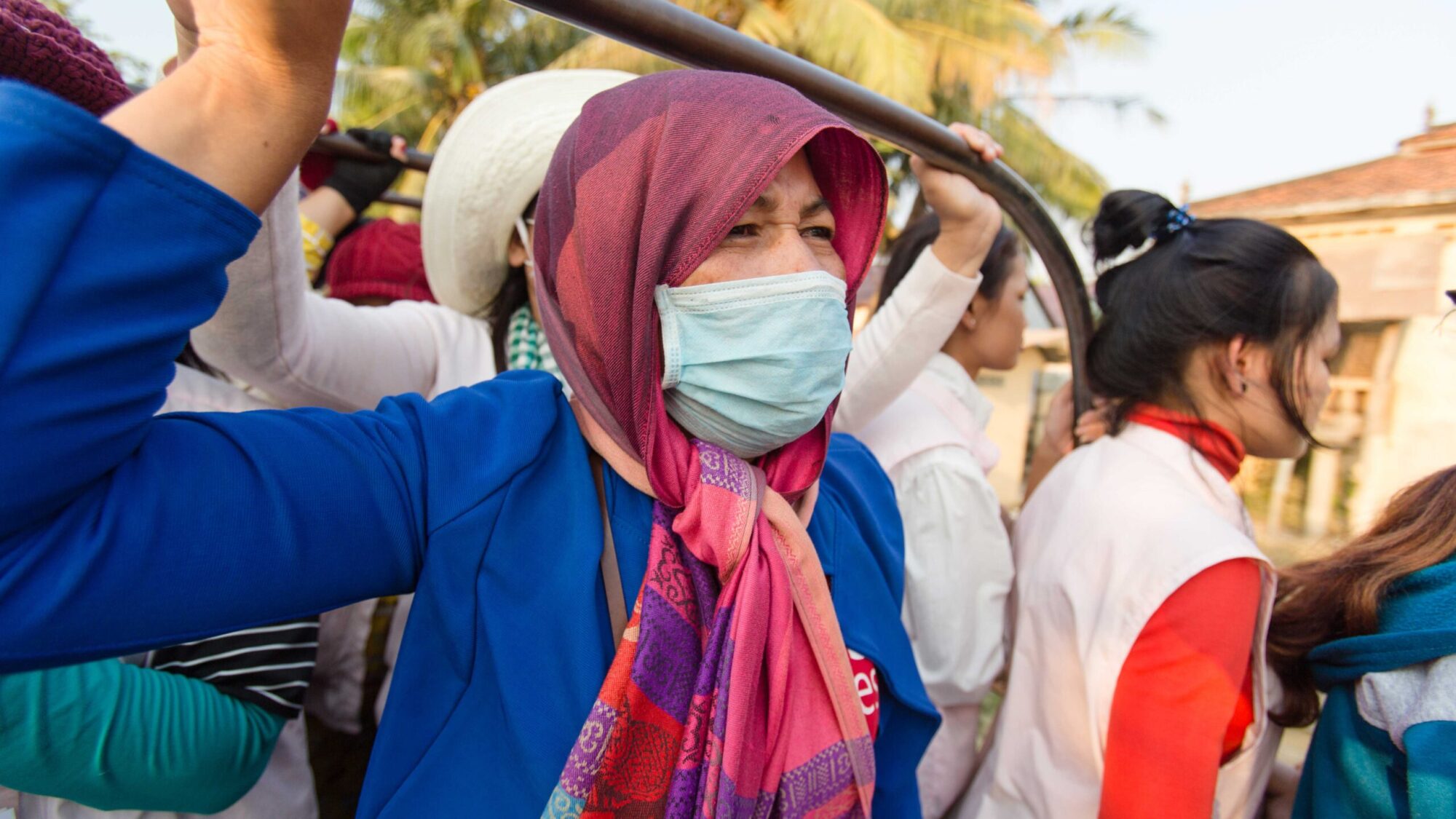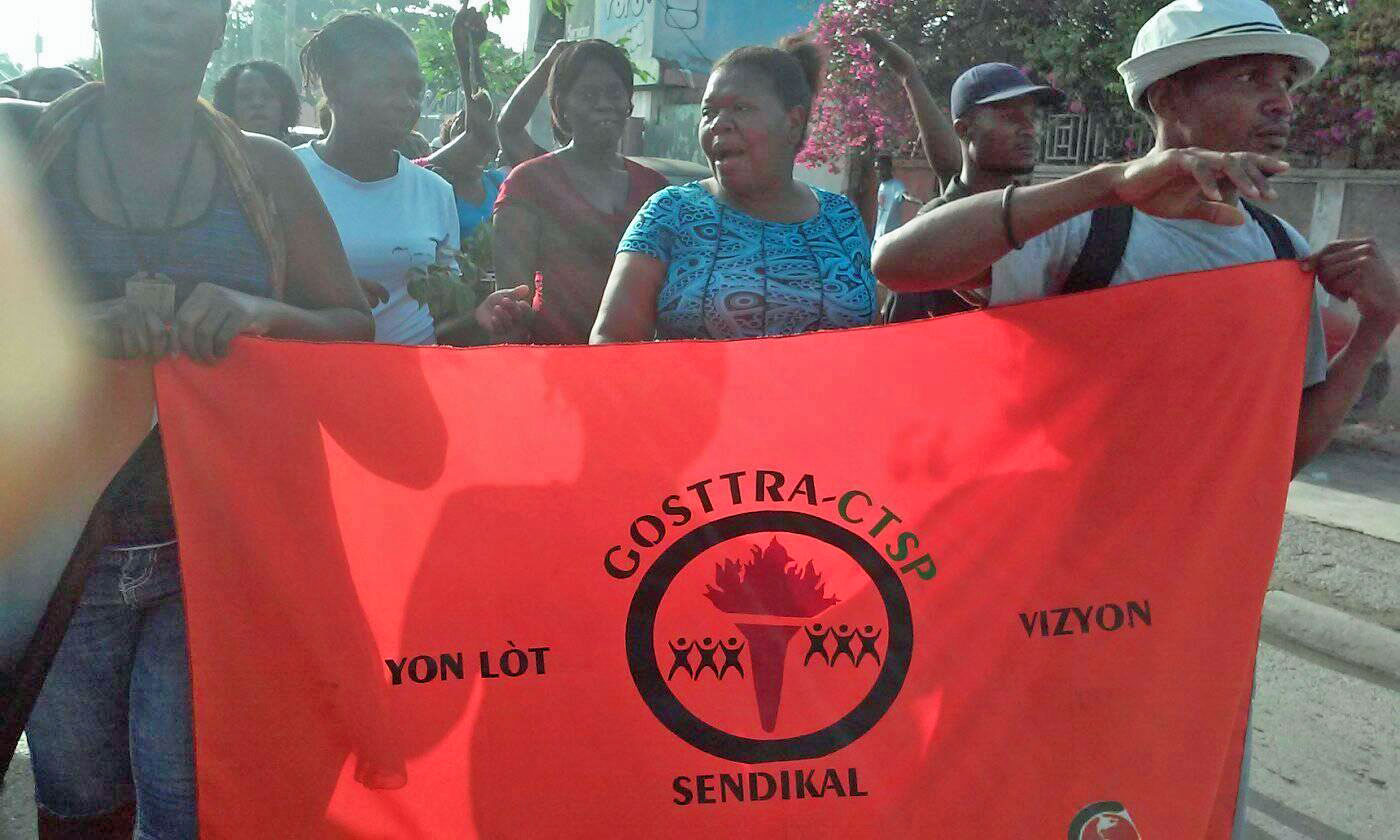Jesmin Begum, a Bangladesh garment worker in her early 30s, died as she and hundreds of others rallied for unpaid wages in one of Dhaka’s Export Processing Zones (EPZs). A sewing operator, Begum was laid off in January from Lenny Fashion, Ltd., after the factory...
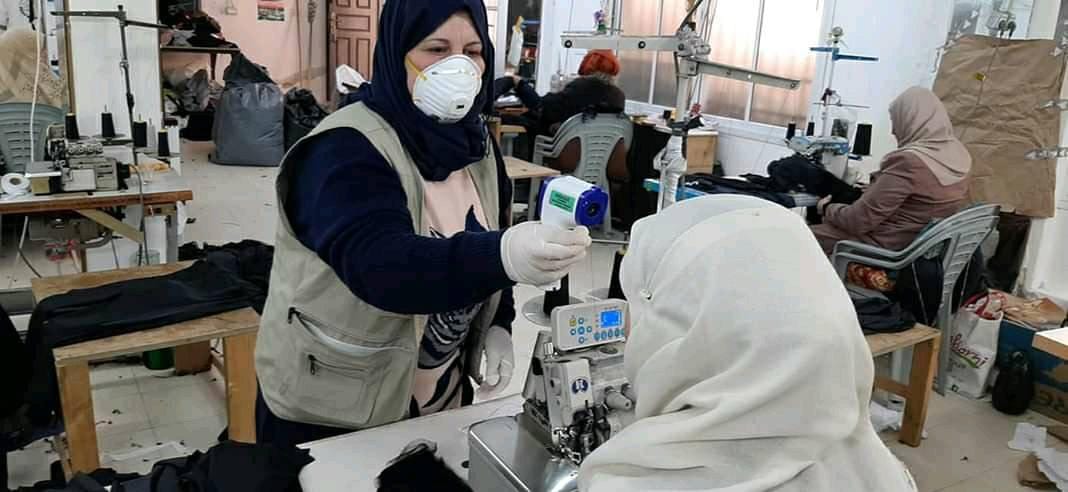
During the COVID-19 pandemic, members of the Palestinian General Federation of Trade Unions, a Solidarity Center partner, tested workers for fever. Credit: PGFTU
Each year, more than 2 million workers die on the job—more than 6,000 a day worldwide. Hundreds of millions more workers a year suffer from non-fatal job-related accidents and illnesses.
The global coronavirus pandemic highlighted and exacerbated the vast inequities facing working people as many risked exposure to the virus without protective safety equipment, tending to sick patients, staffing grocery stores and driving public transport.
In partnership with the Solidarity Center, unions negotiated stepped-up protections and improved wages for workers who risked their lives on the front lines of the crisis, and supported unions as they worked with governments and employers to ensure those furloughed or laid off during the pandemic received wages and social protections such as access to food distribution and unemployment compensation.
Around the world, the Solidarity Center supports networks of unions that are pushing for workplace health and safety measures, such as in Serbia, where unions created a national network of trade union activists to improve workplace safety and health monitoring, and bargain collectively with employers to expand such protections for all workers, regardless of whether they are union members.
On April 28, workers and worker rights activists like the Solidarity Center observe World Day for Safety and Health at Work, an annual day of remembrance for workers who died or were injured on the job and a day to renew the struggle for decent work—family-supporting wages, sick leave and other benefits and safe and healthy working conditions.
Survey: Cambodian Workers Struggle to Survive in COVID-19
Half or more workers in key Cambodian industries were suspended for three or four months, and most were unable to support themselves on government aid during the pandemic, according to a new study that put hard data to the suffering of the country’s low-wage workers....
Haiti Garment Workers Negotiate Landmark Health Payment
Garment workers and their union in Haiti are hailing a landmark settlement with a factory in Port-au-Prince that provided a total of $15,480 in back pay to 1,200 workers. The compensation covers 20 percent of the amount the employer deducted from workers’ paychecks...
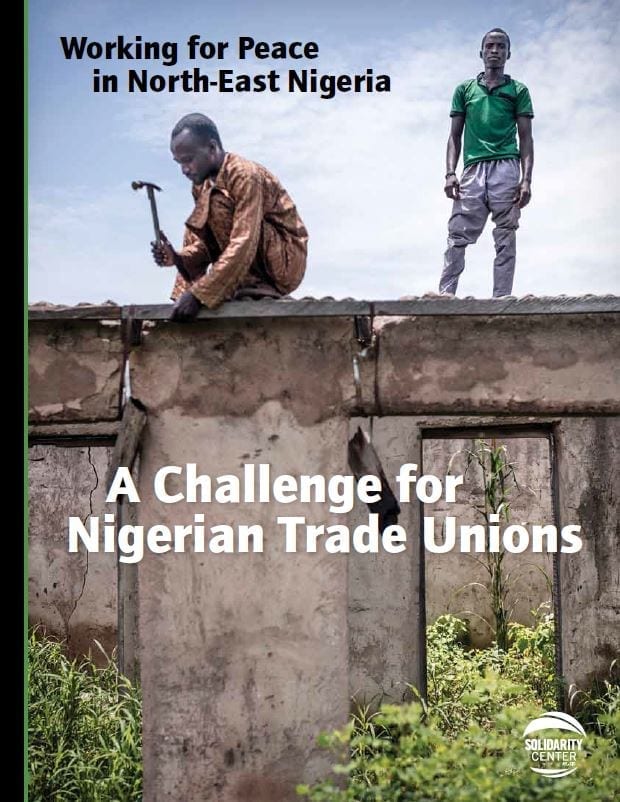
Working for Peace in North-East Nigeria
This report analyzes the impact of violence in North-East Nigeria, where teachers, health care professionals and civil servants were the victimized by insurgents targeting symbols of state authority. The report includes recommendations for government and worker...
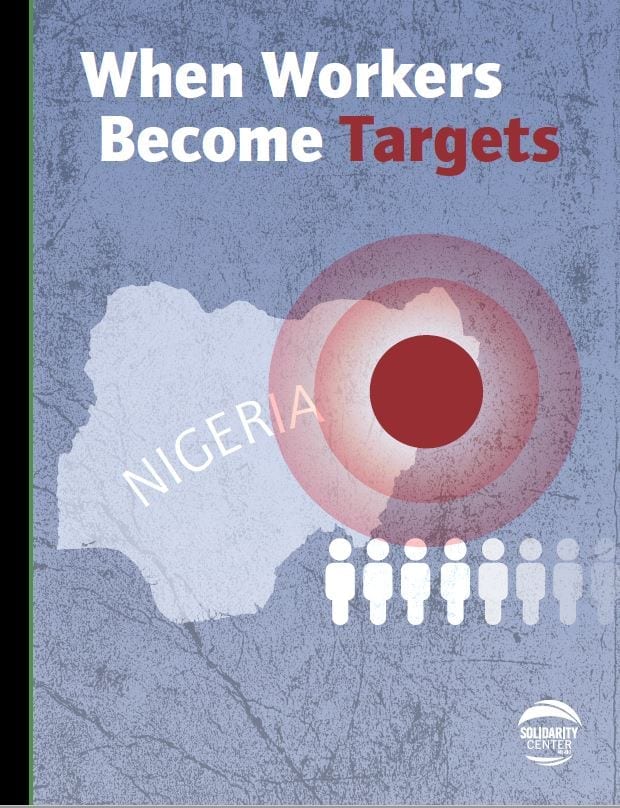
When Workers Become Targets: Nigeria
"When Workers Become Targets: Nigeria," is a collection of real-life experiences of workers, particularly women, during the Boko Haram insurgency in Borno State, North-East Nigeria, and how unions whose members suffered the greatest toll played a crucial role in the...
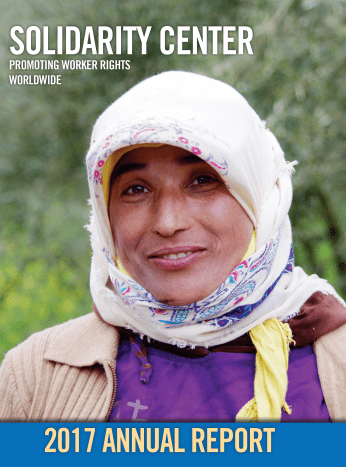
Annual Report 2017
Download here.
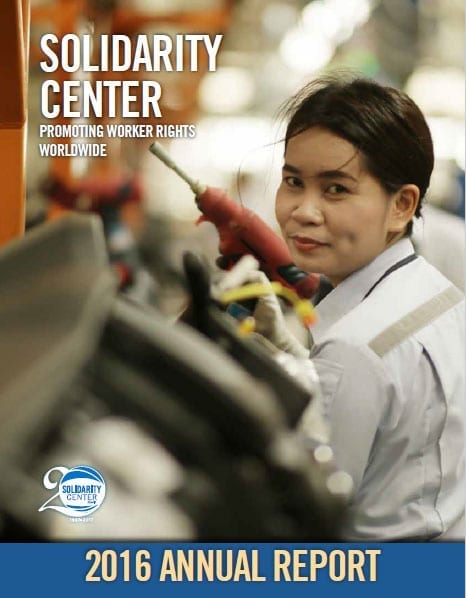
Annual Report 2016
Download here.
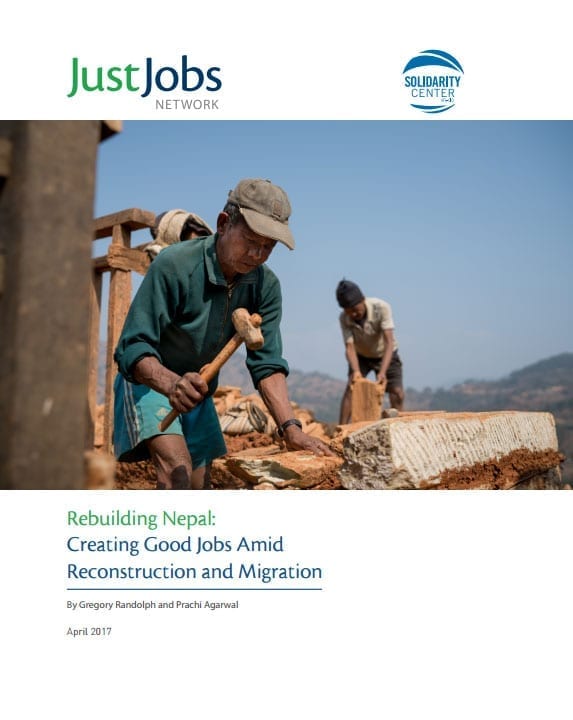
Rebuilding Nepal: Creating Good Jobs Amid Reconstruction and Migration
This JustJobs and Solidarity Center report asserts that post-earthquake Nepal is at a unique moment when it can leverage the reconstruction process to protect worker rights and ensure that migration out of the country for work is a choice, not a necessity....
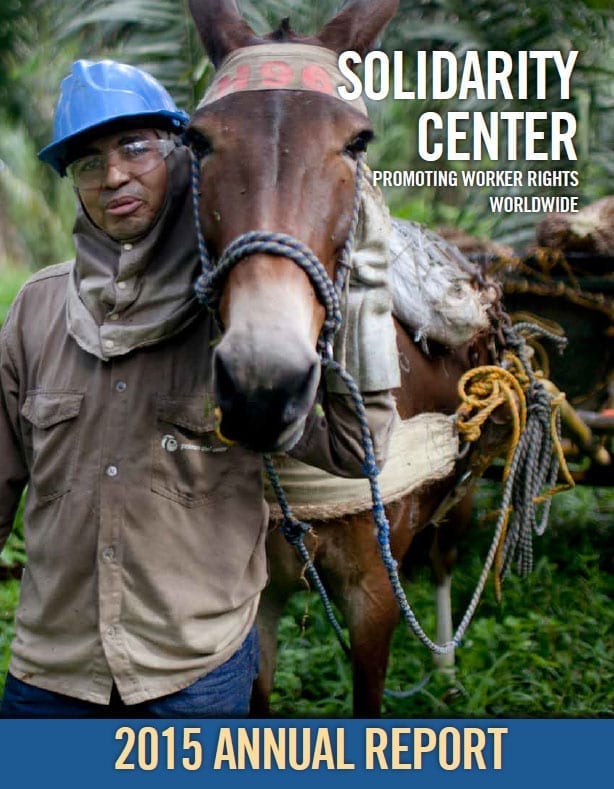
Annual Report 2015
Download here.


